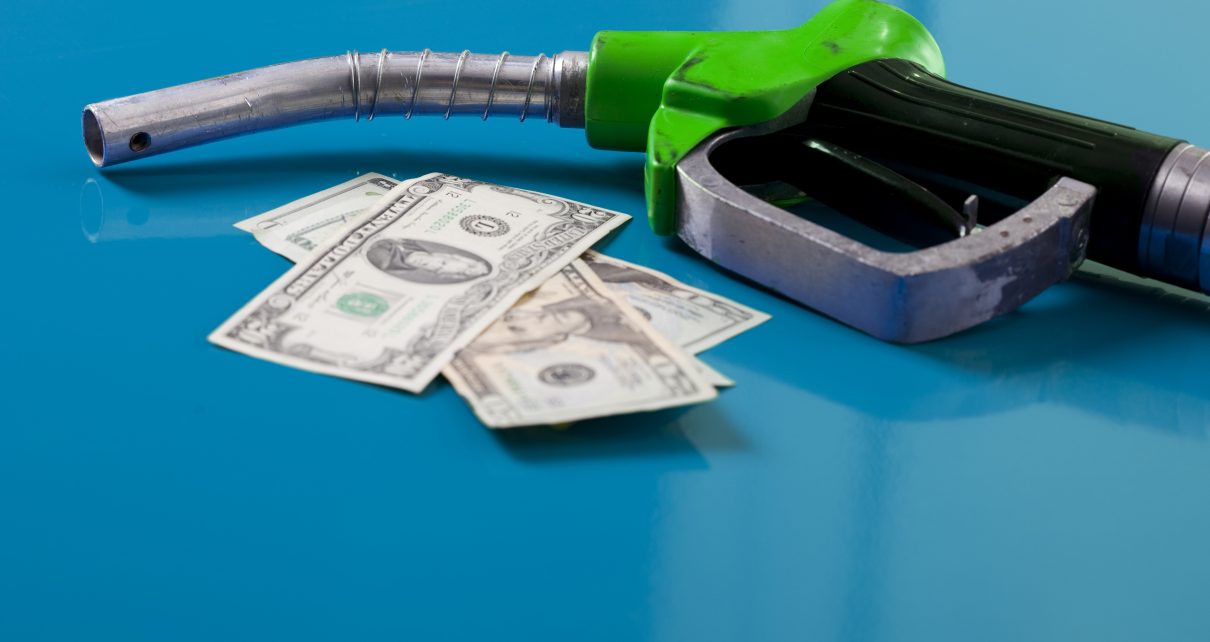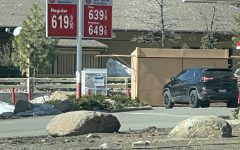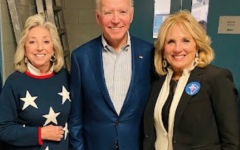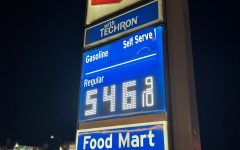
Pain at the pump in Nevada. (Photo: Pixel 4 Images/Shutterstock)
Restricting Gas Stations May Feel Good but it’s Bad Policy
Less production and less competition can mean just one thing: higher prices
By Kevin Dietrich, August 2, 2022 12:46 pm
Failure to understand supply and demand may not be a requirement to serve in local government, but it doesn’t seem to hurt.
As cities and states across the United State, including North Las Vegas, talk about imposing rent control – a policy which has failed everywhere it has been tried – another legislative misstep is gaining popularity.
Several California cities have banned construction of new stations or allowing existing stations to add gas pumps. Los Angeles, the nation’s second-largest city, is among those considering such a proposal.
Why might this be of interest to Nevadans? Because many short-sighted political schemes that begin in California have a way of creeping into the Silver State.
“From a cost standpoint, it can do nothing but force prices up,” said Peter Krueger, director of the Nevada Petroleum Marketers & Convenience Store Association.
Limiting opportunities will result in higher prices at existing stations, the loss of potential jobs from stations that won’t be built and increased pollution from motorists having to drive farther to find gas.
“It makes no sense from an economic standpoint, from an employment standpoint, from an environmental standpoint or from a rational standpoint,” Krueger said.
Last year the California city of Petaluma, north of San Francisco, became the first in the nation to ban new gas stations and allowing stations to add additional fuel pumps. At the same time, the Petaluma City Council streamlined the process to allow existing gas stations to add electric vehicle charging stations and hydrogen fuel cell stations.
Individuals and environmental groups in other states, including New York, Massachusetts and Maryland, are pushing to prohibit construction of new stations. Arguments used by those seeking to ban construction is that there are already enough gas stations and even too many in certain areas.
The goal is to reduce dependency on fossil fuels by forcing residents to convert to electric vehicles. It’s unclear whether the nation’s infrastructure grid is ready to handle the increased demand.
The Nevada Petroleum Marketers & Convenience Store Association is unaware of any public discussions regarding the banning gas station construction in the state.
But the organization is watching the issue “very closely” because there are a number of state legislators who like to keep an eye out for these sorts of ordinances in other states and jump on them, Krueger said.
Several other California communities besides Petaluma have passed new gas station bans, including Rohnert Park, Sebastopol, American Canyon and Calistoga.
And some in Los Angeles are pushing hard for the city of 13 million to bar construction of gas stations.
According to Bloomberg, the city would no longer issue permits for new gas stations or allow existing sites to add fuel pumps under a proposal from Los Angeles City Councilman Paul Koretz, who said the ordinance is still in development, but that he expects a committee hearing by August.
Koretz is hopeful that the measure spreads around the country, according to Bloomberg.
These sorts of political machinations are being noticed.
“Companies – and their investors – have noticed these attacks and regulatory schemes,” the Las Vegas Review-Journal wrote recently. “This has quelled the appetite for making the long-term capital investments that could significantly increase oil production.”
Less production and less competition can mean just one thing: higher prices.
California Gov. Gavin Newsom has proposed ending the sale of gas-powered vehicles in California by 2035. This timeline means “gas stations are a dying business,” Koretz told the Los Angeles Times.
If gas stations are a dying business, why not let them die on their own? When government gets in the business of picking economic winners and losers, it’s almost always the taxpayer who draws the short end of the straw.
- Legislature Seeks to Change How NV Elects President - June 23, 2023
- Restricting Gas Stations May Feel Good but it’s Bad Policy - August 2, 2022





Safety issues- people will take older clunker cars and add extra tanks to provide a reserve supply of gas or store gas cans.